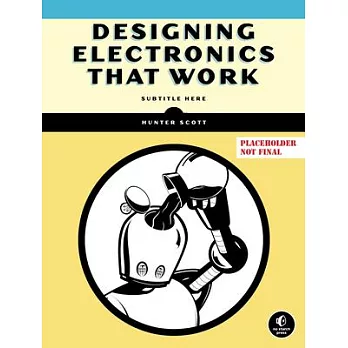Learn the practical stuff they don’t teach in engineering school in this go-to resource on electronics and hardware design.
Most electronics books answer questions like "What is a capacitor and how does it work?" Designing Electronics That Work answers questions like "How do I know which capacitor to buy out of the hundreds of thousands available that all look the same, and how do I use that capacitor in my schematic and layout so that it performs the way I expect?" Full of hundreds of tips, tricks, and techniques that most people only learn through experience, this book is a concise, practical guide to designing and manufacturing electronics. It walks you through the entire process of developing a device, from conceiving an idea, to refining it through prototyping, to the final schematic and layout design, and on to fabrication and assembly. You’ll learn how to select components and work with suppliers, cost-engineer your designs, navigate regulatory testing, and efficiently troubleshoot when things go wrong. Whether you’re a recent engineering graduate, a seasoned professional, or a hobbyist tinkering in your basement, Designing Electronics That Work is a valuable resource. Its battle-tested strategies will save you time and money by speeding up your workflow and heading off problems. Learn from someone else’s mistakes so you don’t have to make them yourself.


 天天爆殺
天天爆殺  今日66折
今日66折 
























 博客來
博客來 博客來
博客來 博客來
博客來 博客來
博客來 博客來
博客來